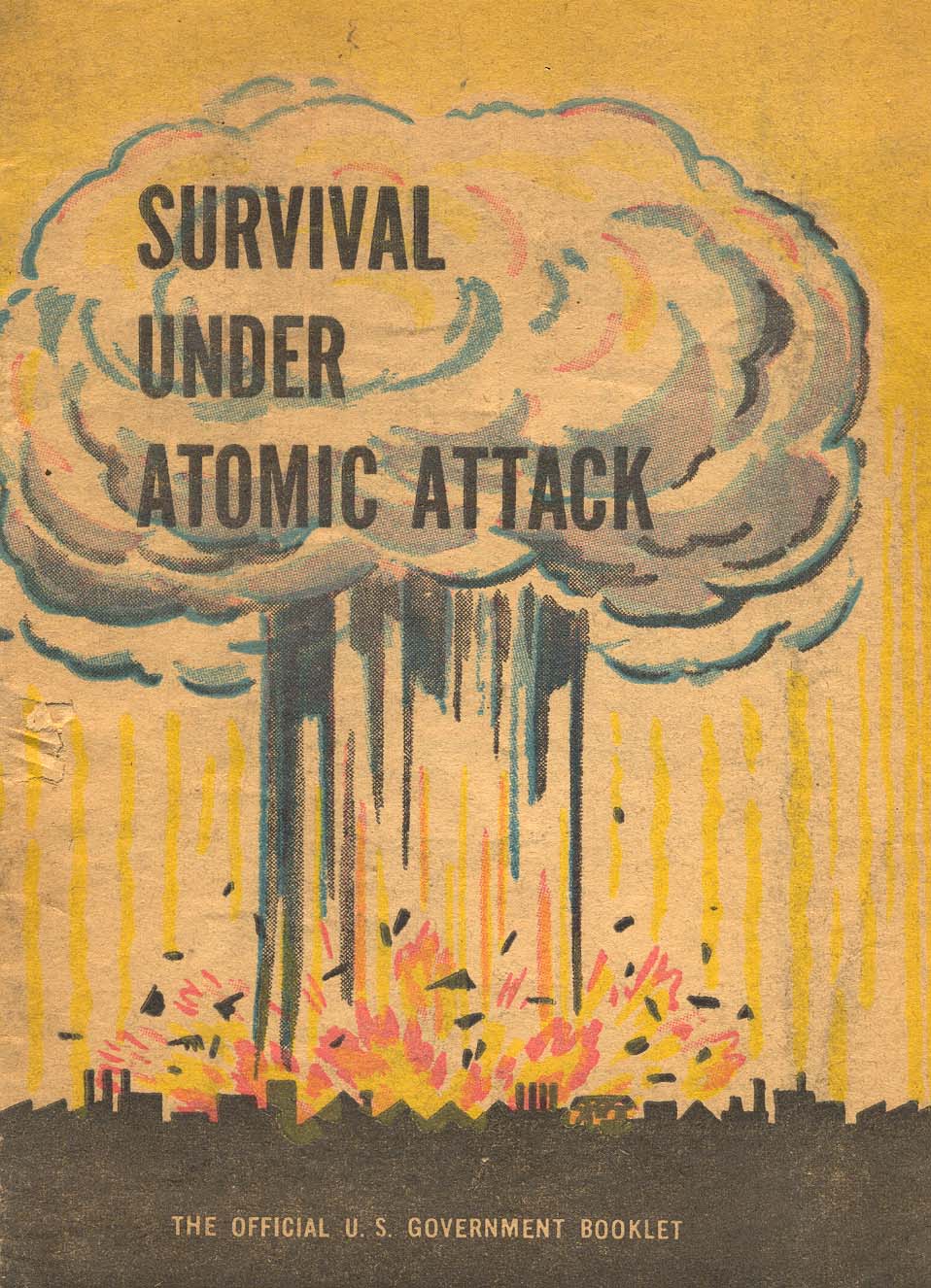Yesterday I blogged about the best place in the world to ride out World War III. Today, I thought that I would offer some tips for surviving a nearby nuclear detonation.
Don't look directly at a nuclear explosion. The intense burst of light can cause macular-retinal burns in the eyes. This damage can result in permanent blindness.
Find some cover to protect youself. It is estimated that most immediate injuries from a nuclear blast will be caused by flying debris as buildings disintegrate. The intense burst of light from a nuclear detonation will precede the flying debris by a few moments. If you see the flash, you will have a few moments to find cover before the debris hits your location. (Hopefully, you will see the explosion from your peripheral vision or reflected from glass on buildings.)
Get inside shelter if possible. The best shelter is below ground surrounded by thick concrete or brick. If you have room, set up a "fallout" room in your house with no windows that contains food and water. Emergency supplies should be adequate food and water for all the inhabitants of the house for at least a couple of weeks. Supplies should be carefully monitored and rationed. They advise you to turn off gas and electricity before retreating to the fallout room. If you cannot find shelter inside a building, find a ditch or a hole and cover your face and eyes with your clothing.
Following the blast, fallout will begin to rain from the sky and continue for a couple of days before taping off. If you are inside a home or other type of building, it would be best to stay inside for a minimum of three days.
When going outside following the three day period, it would be best to stay near your home. Hats, masks and goggles should be worn when outside. As little skin as possible should be exposed to the air. The clothes worn outside should be taken off as soon as you go back inside.
Trying to leave a city after a nuclear attack would expose you to a whole new set of problems and you may wind up without food, water and shelter where ever you go. And you would be exposed to the radioactive fallout on the ground if you are out in the open.
Of course, you should have an emergency radio with extra batteries. One of the radios that can be powered with a hand crank would be a good choice. Cell phones, cable television and the Internet would probably not be available after an attack so the government would probably attempt to connect with the public via broadcast radio. You would need to constantly monitor the radio and, if there were orders to evacuate, you should comply.
Martial law would be declared after a nuclear attack. There will be dangers of violence and looting among the survivors in the cities. Everyone should do their best to cooperate with whatever authorities remain and are trying to restore order. In such desperate conditions, punishment for disobeying authorities will be swift and severe. If you want to survive, you had best comply.
While some may survive a nuclear war, the conditions after the war will be horrible and many more will die from starvation, disease, radiation poisoning and violence. Let us hope that you never have need of the advice in this post.
Cover of old U.S. government pamphlet:
